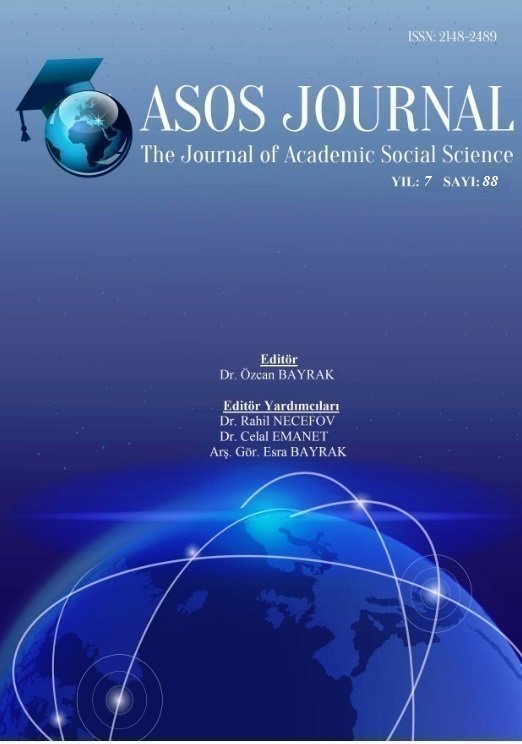Author :
Abstract
Dostoyevski şüphesiz dünya edebiyatının en önemli ismidir. Eserleriyle hem ülkesinde hem de ülkesi dışında çok önemli yazarları etkilemiştir. Özellikle “Yeraltı Adamı” modernizmin simgesi haline gelmiş, değişen toplumsal düzene ayak uydurmak konusunda zorluk çeken bireylerin öncüsü kabul edilmiştir. Dostoyevski Yeraltından Notlar(1864) kitabında, kapitalistleşen ve buna paralel olarak da hızla çirkinleşen insanları ve kentleri metafor olarak yeraltı kavramı ile tanımlamış, yeni düzene ayak uydur(a)mayan Yeraltı Adamı üzerinden yeni düzeni eleştirmiştir. Dostoyevski'deki temel kızgınlık; toplumsal yaşamdaki kurallara bağlı olarak yüceltilen ikiyüzlülük ve sahte ahlak anlayışıdır. Dostoyevski gibi toplumdaki ikiyüzlülük ve sahte ahlak anlayışından rahatsız olan Demirkubuz da filmlerinde ahlak kavramını tartışmaya açan filmler yapmıştır. Dostoyevski’nin Yeraltından Notlar kitabının serbest uyarlamasını yaparak Yeraltı(2012) filmini çekmiş, neredeyse 150 yıl sonra modernist toplumların ve bireyin durumunu tahlil etmeye çalışmıştır. Toplumlar, tarihler ve kültürler farklı olsa da modernleşen insanın varoluş sorunları benzerdir ve bu benzerliğin üzerine giden Demirkubuz Yeraltı filminde, Dostoyevski’den ödünç aldığı Yeraltı Adamı üzerinden bireysel ve toplumsal ikiyüzlülüğü, ahlak çerçevesi üzerinden ele alarak kavramı iyi ve kötünün ötesinde tartışır. Bu makale de, Dostoyevski’nin Yeraltı adamı ile Demirkubuz’un Yeraltı adamı Muharrem’i ahlak kavramı üzerinden incelenmeye çalışılacaktır.
Keywords
Abstract
Dostoyevsky is undoubtedly the most important name in world literature.He has influenced very important writers both in his country and abroad with his novels. Especially the “Underground Man” has become the symbol of modernism, the pioneer of individuals who have difficulty in adapting to changing social order. “Notes from the Underground” (1864), Dostoyevsky, in his book, he defined the people and cities as capitalists and under the concept of underground as a metaphor, he criticized the new order through the Underground Man, who could not keep pace with the new order. Basic resentment at Dostoyevsky; the concept of hypocrisy and false morality adopted in accordance with the rules of social life. Like Dostoyevsky, Demirkubuz, who is disturbed by the hypocrisy and false morality in the society, has also made films that open the way to discuss the concept of morality. He shoot the movie “Underground” (2012) for a free adaptation of Dostoyevsky's “Notes from the Underground” (1864), almost 150 years later he has tried to analyze the situation of modernist societies and the individual Even though societies, histories and cultures are different, the problems of existence of modernized people are similar and based on this similarity, Demirkubuz, in his film “Underground” he discusses the concept beyond good and bad by handling individual and social hypocrisy in the moral framework through the underground man he borrowed from Dostoyevsky. In this article, Dostoyevsky's Underground man and Demirkubuz’s Underground man named Muharrem will be studied through the concept of morality.





